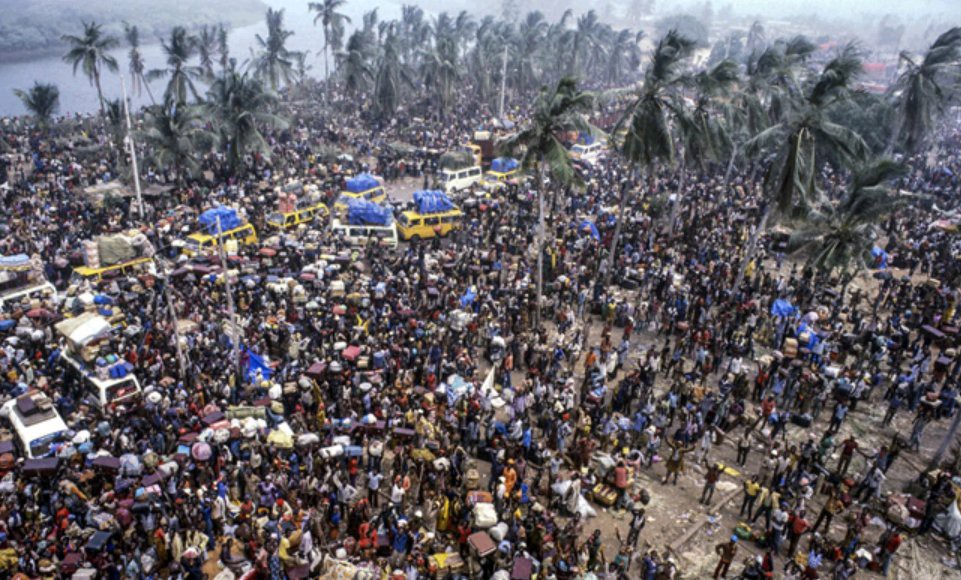On January 17, 1983, President Shehu Shagari ordered the immediate expulsion of about two million undocumented migrants from Nigeria.
Diaspora digital media (DDM) gathered that the directive primarily targeted foreigners, particularly Ghanaians, who had been living in the country without legal documentation.
Shagari, known for his preference for long hats, announced that illegal immigrants must leave without delay.
He instructed security agencies to enforce the order and warned of strict measures against defaulters.
“If they don’t leave, they should be arrested, tried, and sent back to their homes,” Shagari declared.
He emphasized that undocumented migrants should not expect any formal notice before deportation.
The expulsion led to one of the largest mass deportations in West African history.
Background: the “Ghana must go” crisis
The 1983 expulsion order remains one of Nigeria’s most controversial immigration policies.
It primarily affected Ghanaian migrants, leading to the infamous phrase “Ghana Must Go.”
Ghana had previously expelled Nigerian migrants in 1969 under its “Aliens Compliance Order.”
During that period, thousands of Nigerians were forced to leave Ghana abruptly.
Fourteen years later, Nigeria implemented a similar policy, targeting Ghanaian and other West African migrants.
This created significant diplomatic tensions between the two nations.
Reasons behind the mass deportation
Nigeria’s economic downturn in the early 1980s played a key role in the expulsion.
A sharp decline in global oil prices led to reduced national revenue and rising unemployment.
The Nigerian government blamed undocumented migrants for worsening the economic crisis.
Officials claimed that foreign workers were taking jobs meant for Nigerians.
They also accused undocumented migrants of contributing to rising crime rates in urban areas.
Tensions had been building as public sentiment turned against foreigners living in the country.
Political pressure mounted on the Shagari administration to take decisive action.
The expulsion and its consequences
Following the president’s directive, security agencies enforced the mass deportation.
Millions of migrants, mostly Ghanaians, scrambled to leave the country.
Many carried their belongings in large checkered bags, which later became known as “Ghana Must Go” bags.
Thousands of people, including women and children, were stranded at Nigeria’s borders.
The sudden deportation caused a humanitarian crisis, with inadequate transportation and shelter for returnees.
Ghana, already struggling with its own economic problems, faced difficulties accommodating the returnees.
The expulsion strained diplomatic relations between Nigeria and Ghana for years.
Despite regional agreements on free movement, the event highlighted the fragility of economic integration.
Today, the phrase “Ghana Must Go” remains a symbol of forced migration and economic hardship.







